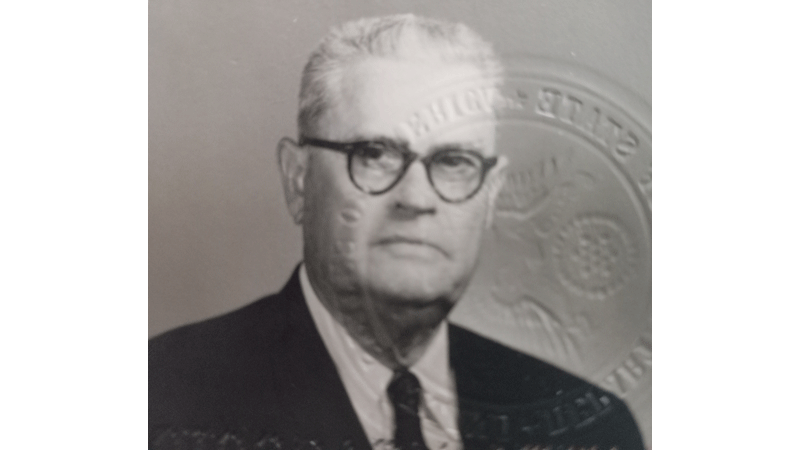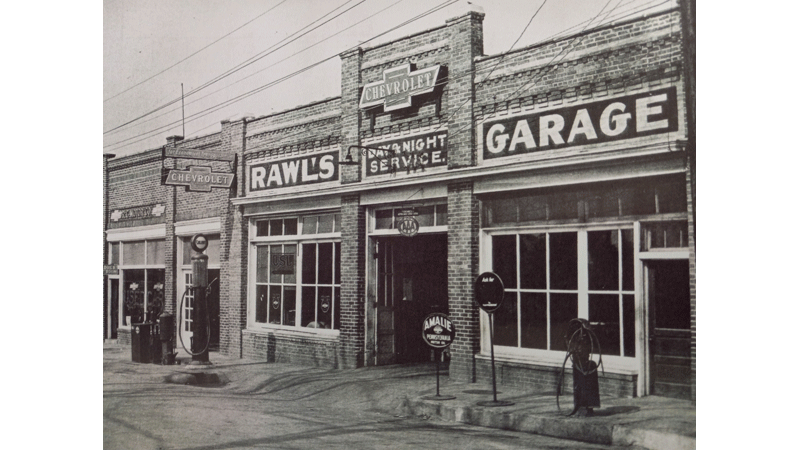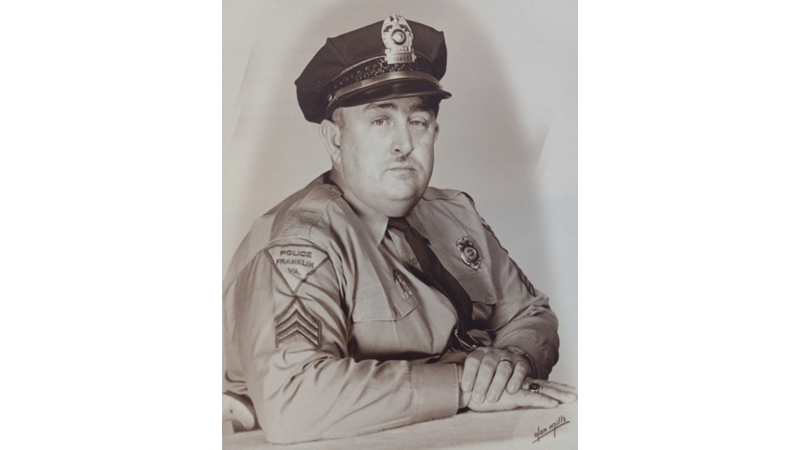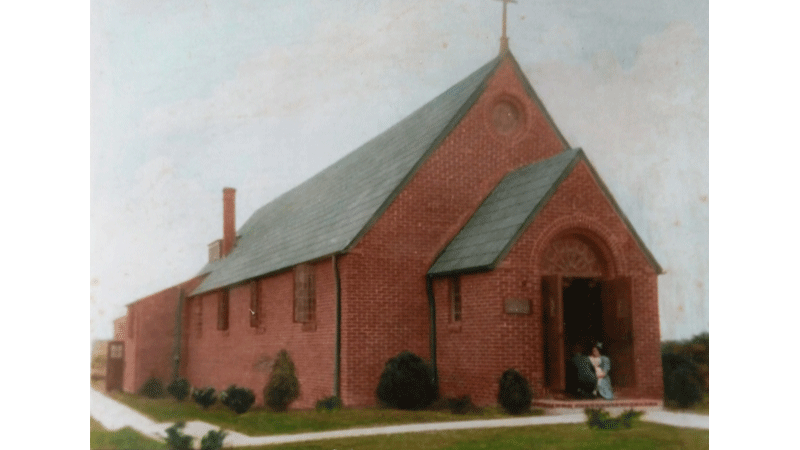LOOKING BACK: Sol W. Rawls Memorial Bridge
Published 9:59 am Thursday, May 25, 2023
Twenty-five years ago, on Friday, May 22, 1998, a local legend was honored as the new twin bridges over the Blackwater River on the Route 58 bypass were dedicated to the memory of Sol Waite Rawls, Sr. The weather couldn’t have been more perfect, on that Friday morning, for the “Sol W. Rawls Memorial Bridge” dedication. Approximately 50 people — including Sol W. Rawls, Jr., as primary speaker, and many family members — attended the ceremony, which took place at the family farm where Rawls was born and raised. The farm is located in the South Quay community, about four miles away from the new bypass bridges. Mr. Rawls was born on May 3, 1888, a son of Robert Rawls and Diana Cutchins Rawls, and died on June 22, 1976.
Mr. Rawls was educated in Nansemond County and Franklin schools. He attended the College of William and Mary in Williamsburg from 1906 to 1909, where he was a member of the Philomathean Literary Society and Theta Delta Chi fraternity.
In 1912, Mr. Rawls established, on Franklin’s Fourth Avenue, Rawls Garage which included an automobile dealership.
In 1916, he was married to Rowena Savage Camp of Franklin.
In 1918, Rawls enlisted in the United Sates Naval Reserves; and, soon after being assigned to foreign service, set sail for the war zone in France. He was assigned ground aviation duties, working on aircraft; he was noted for his skill as a machinist and automobile driver, his primary duties while in France. He was the first married man in Southampton County to voluntarily enlist. While in the service of his country, he turned over the management of Rawls Garage to J. A. Johnson.
Following the war, Mr. Rawls returned to Franklin and resumed his civilian life. He continued to operate and expand his automotive businesses which, over time, included, variously, the sale of Buick, Hupmobile, Oldsmobile, Dodge, and Saxon cars — and Republic trucks. And, he established Franklin Oil Company selling wholesale Texaco products, initially. Later, the company was renamed S. W. Rawls, Inc. which was in existence, as a Gulf Oil distributor, for decades.
Mr. and Mrs. Rawls’ son, Sol W. Rawls, Jr. was born in Franklin on October 25, 1919
An editorial appearing in the Sunday, May 24, 1998 edition of The Tidewater News highlighted Mr. Rawls’ (Sr.) life and accomplishments:
Some feel there is a personal responsibility to do their best to help others. This was the path Rawls took.
Educated in Nansemond and Southampton County Schools, and later at the College of William and Mary, he took an immediate career path to things automotive.
It was 1912, less than a decade after man took flight in Kitty Hawk, North Carolina, and few people owned a “horseless carriage”. The automobile was relatively new and decent roads on which to drive were rare. That year, Rawls opened an automobile dealership in Franklin, one of only two in Southampton County. He also became involved as an oil distributor and established Franklin Oil Company, later S. W. Rawls, Inc.
However, much of Rawls’ work was done as a member of the Virginia Highway Commission. He retired from the commission in 1962, after 30 years of service. He served more time than any other member ever did; during his later years with the commission, he was its secretary. Rawls helped establish the modern interstate system Virginia residents enjoy today.
In the early 1930s, many communities across the state lacked connecting highways. Rawls attended hearings around the commonwealth to hear public concerns and bids for new roads near towns and villages.
He had a flair for the dramatic in making a point. When an improved road was contemplated from Franklin to Petersburg, he got a car of dignitaries stuck in sand between Zuni and Windsor. The result was a much-improved road built from Courtland to Petersburg.
Rawls was instrumental in building the first paved road leaving Franklin. It went halfway to Courtland and was about half the width of the roads today. Even so, it was an improvement. Most roads then were dusty or muddy and motorists easily got caught in storms and rising waters.
He stood up for what he felt was right. When interstate 64 was proposed to sweep through Roanoke, Rawls fought for a northern route through Charlottesville to save money and time.
Rawls introduced the idea for bypasses around communities, implementing the first one at Fredericksburg.
He served for almost a decade on the Richmond – Petersburg Turnpike Authority.
Rawls served on the highway commission longer than any other member, and spent the later part of nis career as the commission secretary.
Perhaps Senator Harry Byrd summed it up best when Rawls retired from the commission in 1962. “You have rendered fine service”, the noted statesman said. “I am extremely sorry to hear of you leaving the highway commission.”
Friday’s bridge dedication is a fine and fitting memorial to a man so dedicated to his community and state.
NOTE: Descendants of Sol Waite Rawls, Sr. include: his son Sol Waite Rawls, Jr. (who died on January 28, 2018); his grandchildren Ann “Rendy” Rawls Adams, Betsy Camp Rawls Agelasto, Sol Waite Rawls III, and Patricia Peace Rawls; and, of course, his great grandchildren.
CLYDE PARKER is a retired human resources manager for the former Franklin Equipment Co. and a member of the Southampton County Historical Society. His email address is magnolia101@charter.net.






